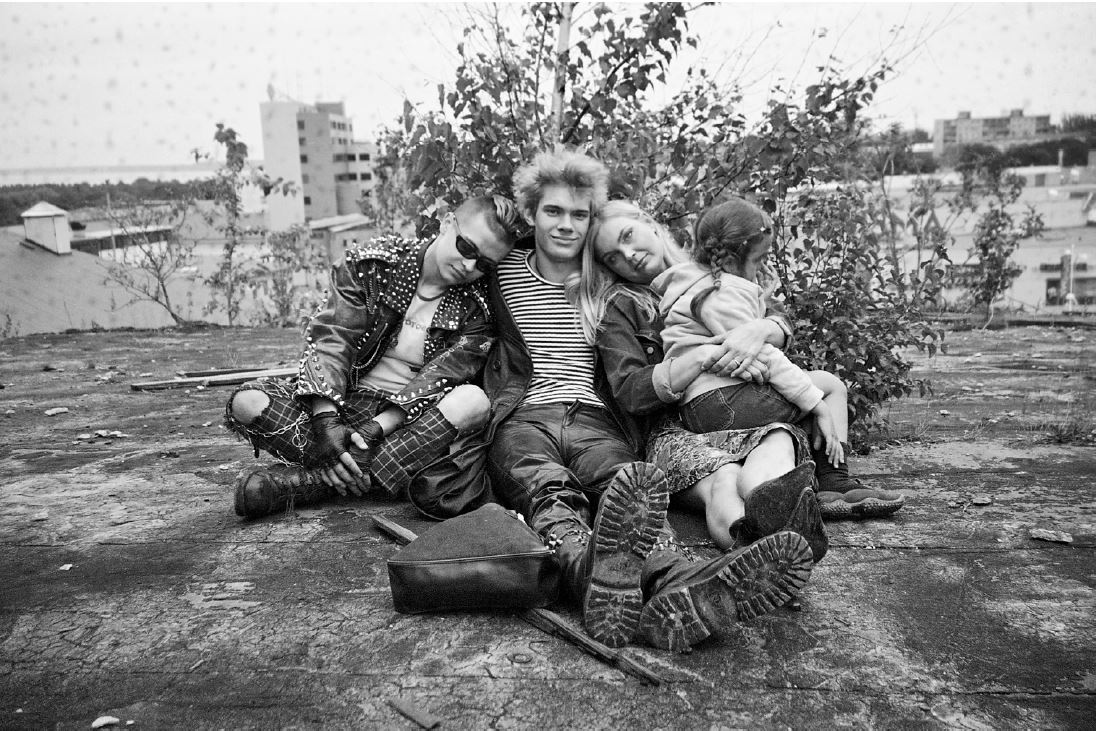Man has the mind of an animal. Inside, he fails spectacularly to draw a line between a little fun and the misery of lifelong rearing and responsibility. Sure, he’s well aware of where children come from, but good grief—how was he supposed to know it would go that way that time? In truth, it’s entirely possible that no one ever really has a choice; that children have to come into the world in pairs or just unintentionally, and it’s some sly artifice of predestination which catches them in its web—not carelessness or lust. The real miracle is when you do come across outstanding parents who respect each other and their children; parents who get together at a very young age but still finish their degrees alongside their parental duties, find work, gradually build up their careers, have more children, end up with a large family where the older kids help the younger ones, their grandparents show up to lend a hand, kind sorts of grandmothers who wear headscarves and aprons, all the children grow up and not at all crookedly in the process, the couple doesn’t splurge but neither do they have any trouble making ends meet and everything they accomplish is accomplished well from start to finish, they do not make mistakes, they do not doubt, they do not veer off course.
Adam and Lilita’s relationship had been rocky for a long time. They stuck together like an old married couple out of impuissance, powerlessness, and the inability to let go. They certainly made attempts: Adam gallivanted around with briefcase in hand, drinking wherever he may, and it wasn’t uncommon for girls to be hanging around his neck during those benders, either—some wild quality within him drew women close like a magnet, and it came as no surprise when one of them got knocked up. The girl made her own decision, not going to anyone for advice. Perhaps the bygone mandate that young women be accompanied by a chaperone was actually a very wise one, as it prevented them from ever being left anywhere unsupervised before wedding bells rang. Historically speaking, of course, only the well-to-do class had the time to shadow their daughters: the peasant and the gatherer had to keep an eye on themselves. And even once those bells toll, there begins a general era of anomalies, deception, and infidelity; one that trundles on until the partners’ strength gives out and old age extends a rescuing hand.
Mother Ewa had seen Kasia before. She had been with Adam on one of his sporadic visits and she was acquainted with Kasia’s parents through some distant contacts as well. Ewa liked the mild-mannered young woman. One day, she heard the news that Kasia had brought a healthy boy into the world. Poor girl, pani Ewa thought with a wave of sympathy. So young and now, all alone with a child. Who was the bastard who knocked her up? She felt a powerful urge to help in some way; to show her support. Although Ewa rarely left home, she now undertook the long journey to the farthest reaches of Warsaw where Kasia and her newborn were living with the girl’s parents. Dearie me—the girl hasn’t even finished school yet!
A veritable feast was laid out in the kitchen for her visit, which was unexpected. Ewa delivered her present, peeked in at the baby, spoke a few kind words, sat down with the family at the table, and enjoyed a delicious meal. Outside, the weak glow of a winter’s day seeped over the bare treetops and the hulking gray apartment blocks. It was the dreary type of weather in which everything looks strangely pocked. A wet snow had fallen over the hard crust which already encased the ground, dimpling its surface. Rimed crystals drifted lazily and the dappled air made the world look like a photographic plate peppered with nicks and smudges, grimy and foggy. Kasia’s father, who was already quite elderly, sat across from Ewa. She noticed he was missing a number of fingers on one hand, though over time he’d learned to hold his fist in a way so as not to draw attention to it. The atmosphere in that tiny kitchen was somehow heavy and oppressive during the meal, though everything in the nursery was just as it should be: there was a crib with toys twirling above it, the baby’s bottles were sanitized with boiling water . . . they would manage – that much was clear. Ewa even made a point of stressing that she’d be glad to help out with babysitting and advice should they need it. She felt a smidgen of pride for being such a good person.
As Ewa was pulling on her coat in the entryway and the family stood in a formal line to say goodbye, Kasia’s mother remarked: “Oh, it was so awfully nice of you to come. You have our deepest gratitude. And tell Adam he can come and see the baby, too.”
“Of course,” Ewa casually replied.
It was only once she had crossed the soggy ground, boarded the bus, and was staring out its window with both hands clutching the curved black straps of her purse that realization struck her like a lightning bolt and the world swam before her eyes.
Adam was the child’s father. And she had only figured it out now, the old fool that she was.

